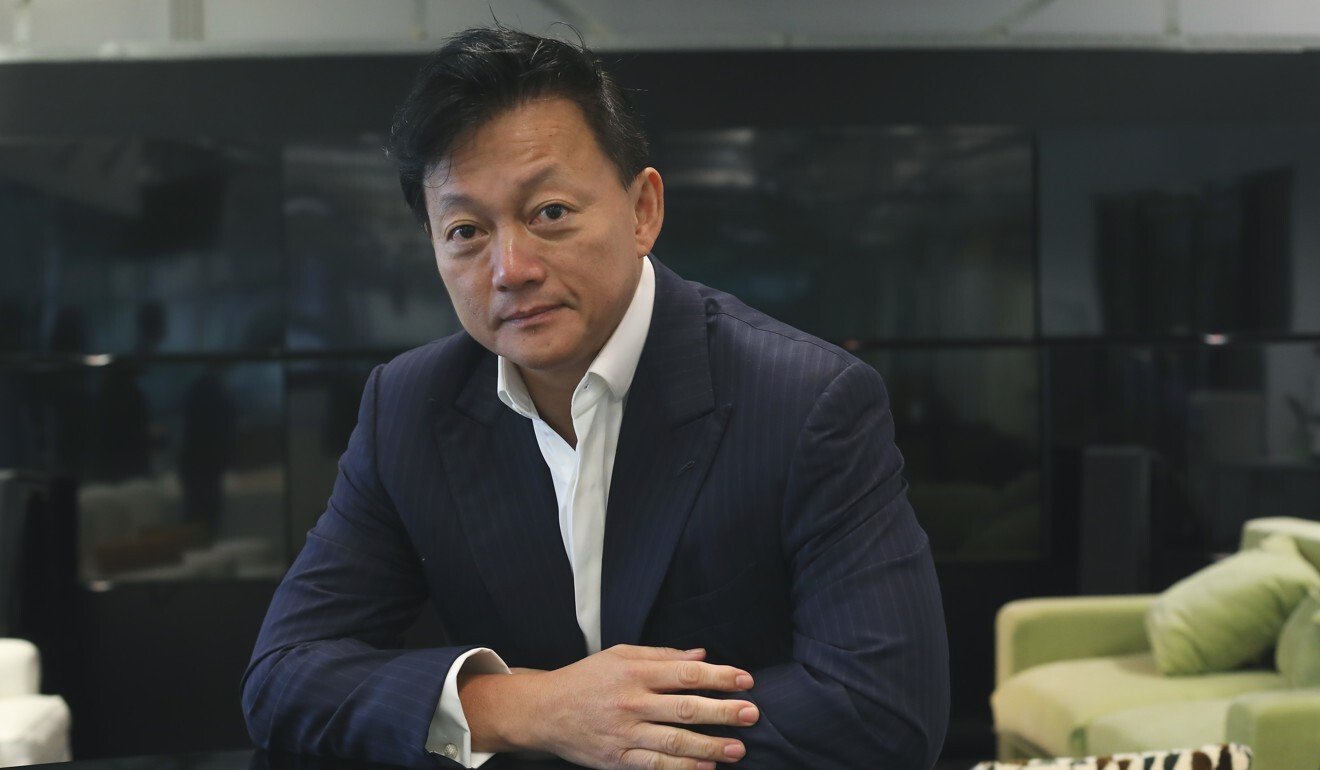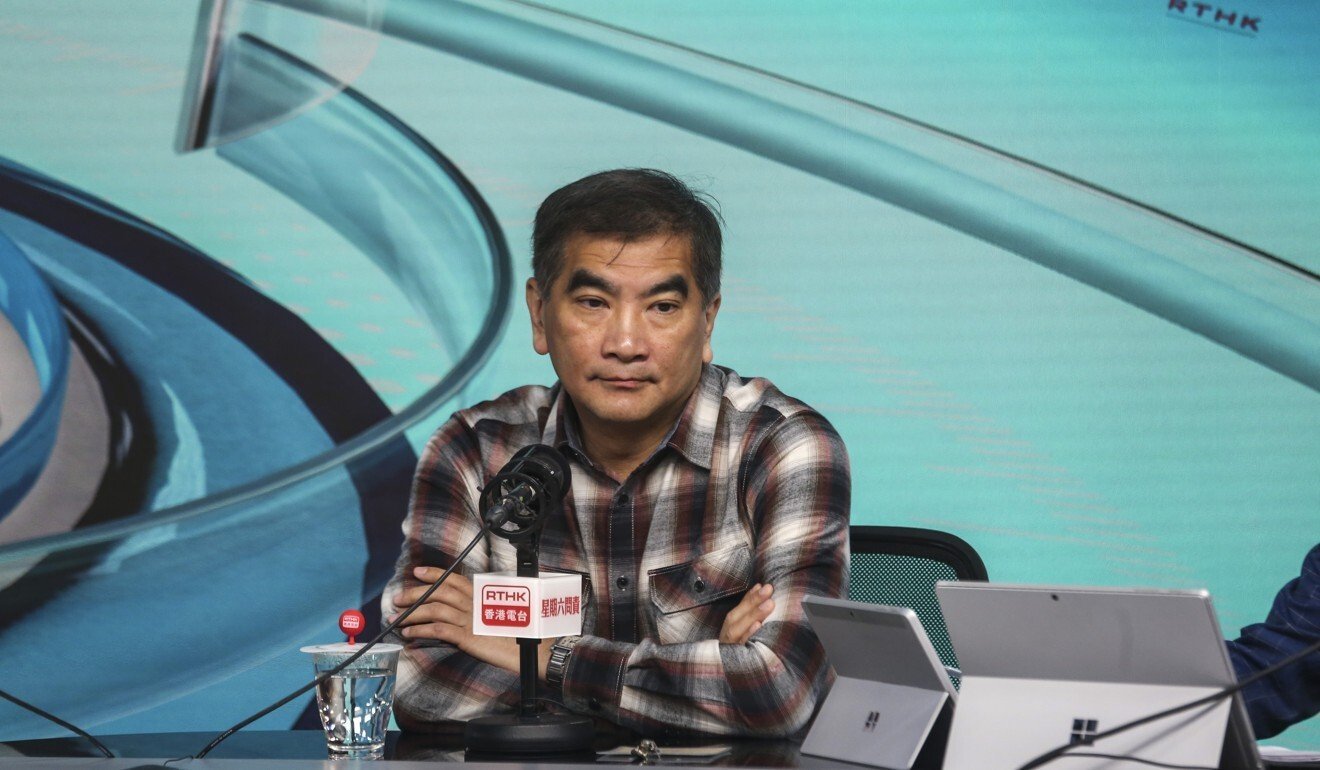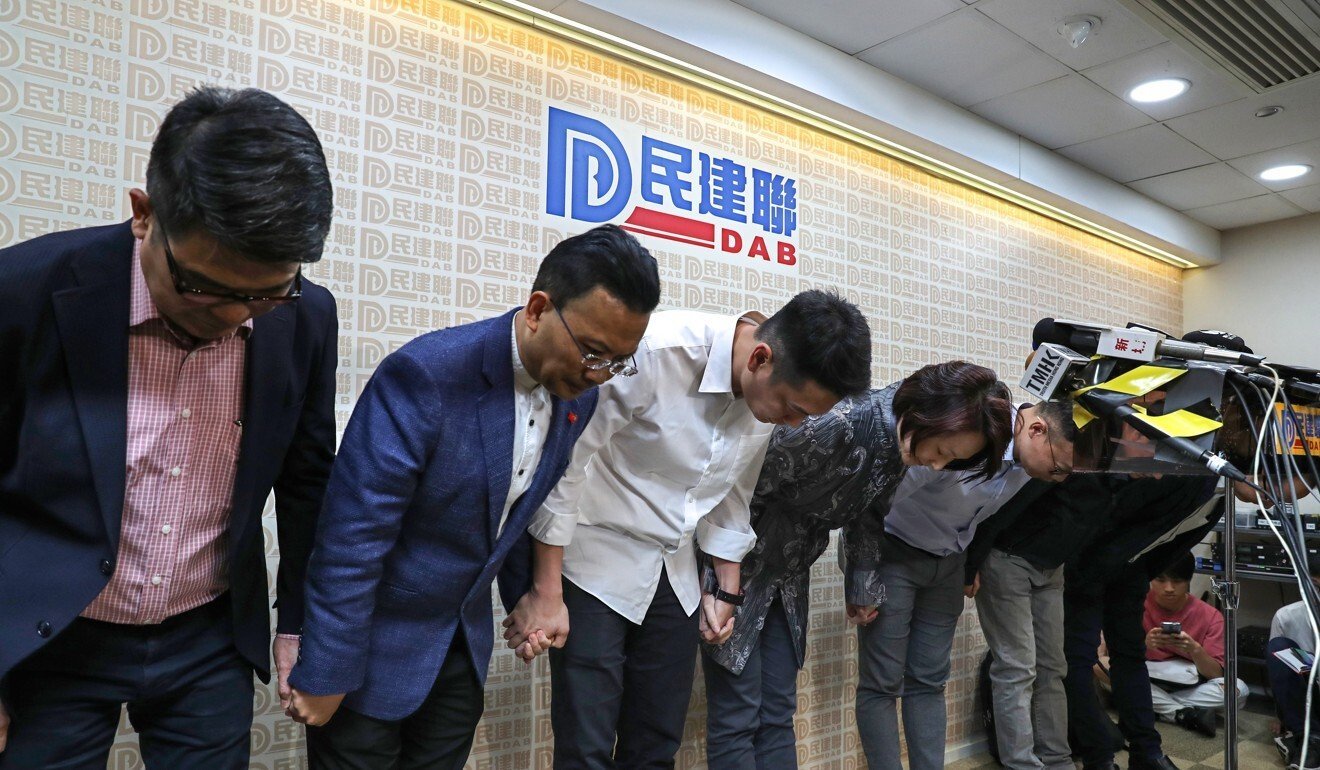Liberal Party leader Felix Chung says he believes Beijing will use the party to inject new blood into the camp and root out underperformers.
Beijing may use the new Bauhinia Party to replace poorly performing members of the pro-establishment camp in Hong Kong, political veterans have said, but an adviser to the city’s leader doubted whether the central government was truly behind the organisation and predicted its influence would be limited.
Three businessmen born on mainland China caught much of the political establishment off guard last week with the revelation they had registered the Bauhinia Party and would formally launch the organisation in one to three months. They aim to recruit up to 250,000 members, which if accomplished, would leave the party towering over others.
But in an interview with the Post, one of the co-founders sought to calm fears they were a proxy for Beijing intent on sweeping aside all rivals, insisting their goal was instead to strike a middle path through the political gridlock and forge a consensus on how best to solve root problems in society. The party plans to train political talent and eventually offer candidates for both Legislative Council and chief executive elections.
“Beijing hopes our emergence would benefit Hong Kong but not to stir up trouble before we launch. But in the past few days, many members of the pro-establishment camp complained to the liaison office about us … and asked to clarify whether our party was set up to replace them,” said Charles Wong Chau-chi, the party’s secretary and chief executive of the Hong Kong-listed multimedia firm CMMB Vision. “I would love to reach out to other political parties and work with them. I don’t see that as any competition at all.”

The other co-founders are Li Shan, who serves as chairman, and Chen Jianwen. Both are delegates to China’s top political advisory body, the Chinese People’s Political Consultative Conference.
Pro-business party leader Felix Chung Kwok-pan, of the Liberal Party, said he was not surprised that some of his pro-establishment colleagues were anxious over the emergence of the Bauhinia Party, although he was not.
“I believe Beijing had planned to replace some incapable members with capable newcomers, who can think independently to come up with solutions for deep-rooted problems,” he said.
Chung believed the new party might first target five or six seats in the legislature’s functional constituencies dominated by Chinese-funded enterprises and pro-Beijing business associations, then seek to compete with, or annex, major parties, including the Democratic Alliance for the Betterment and Progress of Hong Kong (DAB), in about five years.

Wong Kwok-kin, of the Federation of Trade Unions and a member of Chief Executive Carrie Lam Cheng Yuet-ngor’s de facto cabinet, the Executive Council, pointed out the introduction of the Bauhinia Party came as critics claimed Beijing was disappointed about the performance of some pro-establishment members.
“Frankly, some members only care for their seats and personal interests. The new camp needs new blood, like people with these professional backgrounds,” Wong said, adding Beijing should have endorsed its founding considering the “extensive” connections Li had in mainland political circles.
But lawmaker Regina Ip Lau Suk-yee, chairwoman of the New People’s Party and also an Exco member, doubted the new group would make a significant impact and questioned how much backing from Beijing it actually had.
“There’s nothing wrong for Li to position himself as a reformer. But as a group of financiers, can they help the pro-establishment camp to win seats that we cannot win, like the accountancy, education and legal sectors?” she said. “If they can’t add value but create cannibalism within the camp, this is meaningless.”
The Bauhinia Party’s ambitious goal of registering 250,000 members shocked the political sphere, as the DAB, founded in 1992, is now the largest pro-Beijing party, with only about 40,000 members.

Wong said that in many democracies, 40 to 50 per cent of citizens belonged to political parties, but the number was much lower in Hong Kong.
“Hong Kong has 7.5 million people. If half of the population are politically active and participate in some kind of political process, you’re talking about millions of people,” he said
But the DAB’s Tam Yiu-chung, Hong Kong’s sole delegate to the National People’s Congress Standing Committee, questioned if the membership goal was realistic.
“Action speaks louder than words,” he said. “Recruiting members to join a political party is never easy in Hong Kong.”
Tam added that the liaison office would not “oppose or support” anyone in forming a local party.

His colleague, Leung Che-cheung, said he believed the new group’s influence in direct elections would be limited, and said Beijing would prefer that no single party held sway in Hong Kong in the long run.
“Without coordination with the whole bloc, I’m afraid that they can do nothing in direct elections without district connections,” he said.
Veteran China watcher Johnny Lau Yui-siu said the question of whether the Bauhinia Party would thrive and replace incumbent players depended on the vision of state leaders.
“If Beijing hopes to have a group of liberal patriots in Hong Kong’s political scene, the new Bauhinia Party can potentially walk into the mainstream with high-level coordination from the mainland,” he said. “Why don’t they use a group of mainland-born elites they have trusted instead of relying on local parties to groom talents?”
But Civic Party chairman Alan Leong Kah-kit said he doubted any pro-democracy supporters would be convinced by a new pro-Beijing party, given what he characterised as the political suppression seen in recent years.
“The third road the new party is trying to suggest won’t work unless the founders can convince Beijing to guarantee Hong Kong’ freedom, human rights and rule of law as promised,” he said.















